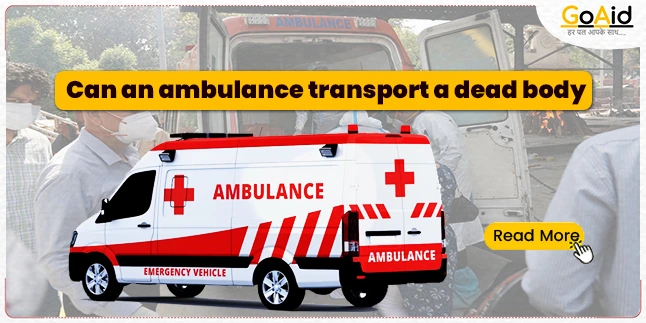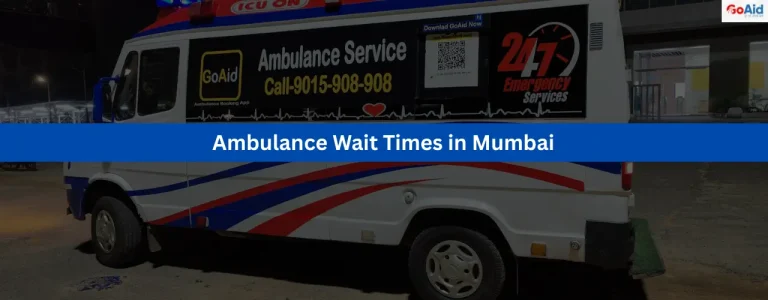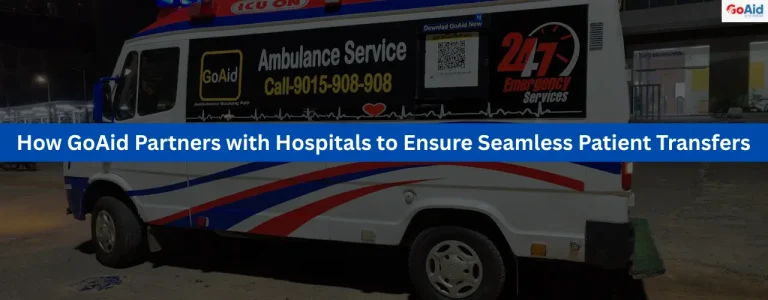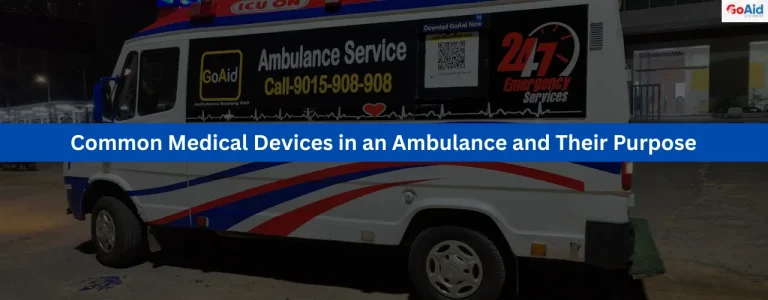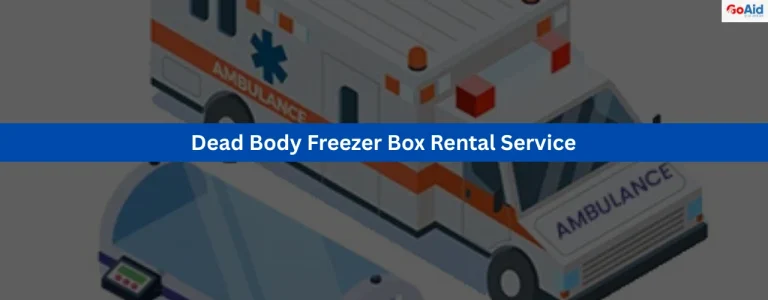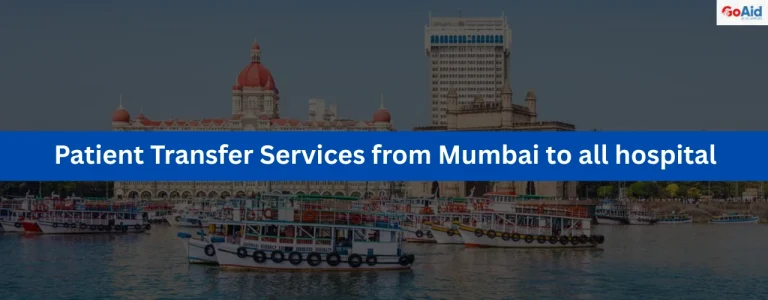A dead body Ambulance & normal ambulance services are two different services dedicated to providing two distinct services to civilians. But still, many people ask a question that stands hard logically and that is ŌĆśCan an ambulance transport a dead body?ŌĆÖ
In this blog, we have differentiated both ICU Ventialtor Ambulance & Normal Ambulance and also have answered this question in detail. After reading this blog, youŌĆÖll be able to know whether an ambulance can transport a dead body or not.
So, letŌĆÖs start-
What vehicle is used to Transport a Dead Body?
The vehicle used to transport a dead body is commonly known as a mortuary or dead body ambulance. These specialized vehicles vary in design but are typically equipped with cooling systems or dedicated freezer compartments to maintain the appropriate temperature for body preservation during transportation.
They are designed to handle the solemn task of respectfully and dignifiedly transporting deceased individuals from the place of death to mortuaries, medical facilities, or funeral homes.
The use of these vehicles ensures compliance with legal and cultural protocols, providing a sensitive and professional means of transferring the deceased while considering the grieving families’ emotional needs.
Can an ambulance transport a dead body?
Yes, an ambulance can transport a dead body. Ambulances that are specifically designed and equipped for this purpose are often referred to as mortuary ambulances or dead body ambulances. These vehicles are equipped with features that allow for the respectful and dignified transportation of deceased individuals.
They typically have cooling systems or dedicated dead body freezer box ambulance compartments to preserve the body during transit. These specialized ambulances are commonly used to transport bodies from the place of death to mortuaries, medical facilities, or funeral homes.
The goal is to ensure a professional and compassionate handling of the deceased, adhering to legal and cultural protocols.
What is the significance of a dead body ambulance?
There are many significance of Dead body ambulances around the world. We have added some of the key significance below:
1. Dignified Transport: Dead body ambulances ensure the dignified and respectful transportation of deceased individuals.
2. Preservation of the Body: Equipped with cooling systems or freezer compartments, they maintain an appropriate temperature to preserve the body during transit.
3. Legal Compliance: Dead body ambulances adhere to legal requirements governing the transportation and handling of deceased individuals.
4. Cultural and Religious Sensitivity: They facilitate adherence to cultural and religious protocols, respecting diverse funeral rites.
5. Professional Handling: These ambulances provide professional and compassionate handling, recognizing the sensitivity of the situation for grieving families.
6. Post-Mortem Examinations: Essential for transporting bodies to mortuaries or medical facilities for post-mortem examinations, aiding in determining the cause of death.
7. Timely Response: Quick response times are crucial, ensuring timely transportation, especially when immediate post-mortem examinations are necessary.
Also Read: GoAid Patient Testimonials: Stories of Survival and Gratitude
8. Distance and Accessibility: Vital for cases where the place of death is remote or inaccessible, allowing for the transportation of the deceased to appropriate facilities.
9. Organ Donation Facilitation: For individuals donating organs posthumously, these ambulances facilitate the respectful transportation of the body to the designated medical facility.
10. Relieving Family Stress: Outsourcing the transportation of the deceased to professionals allows families to focus on mourning and funeral arrangements without added logistical burdens.
11. Hygienic Transport: Dead body ambulances are designed to maintain hygiene standards during the transportation of deceased individuals.
12. Reducing Emotional Burden: The services provided by these ambulances aim to reduce the emotional burden on grieving families by ensuring a respectful and organized process.
13. Preservation of Evidence: In cases requiring post-mortem examinations for legal purposes, dead body ambulances contribute to the preservation of forensic evidence during transportation.
14. Ensuring Privacy: These ambulances offer a private and secure environment for the transportation of the deceased, respecting the privacy of the deceased and their family.
15. Compassionate End-of-Life Care: Dead body ambulances play a crucial role in providing compassionate end-of-life care, recognizing the significance of the final journey for the deceased and their loved ones.
Also Read: Choosing the Right Dead Body Transport Company: Price vs. Service Quality
What if there is no Dead Body Ambulance?
If there is no dead body ambulance available, transporting a deceased individual becomes challenging and may lead to several complications:
1. Dignity Concerns: Without a specialized vehicle, the dignity of the deceased may be compromised during transportation.
2. Limited Preservation: Lack of proper cooling or freezing facilities may impact the preservation of the body, particularly during longer journeys.
3. Legal Issues: Transporting a deceased individual without adherence to legal requirements can lead to legal complications for the individuals involved.
4. Cultural and Religious Challenges: Without a dedicated service, it may be challenging to adhere to cultural or religious protocols regarding the handling and transportation of the deceased.
5. Emotional Distress: Family members may experience heightened emotional distress, as the absence of professional services may make the process more difficult to manage.
6. Hygiene Concerns: Transportation without a specialized vehicle may raise hygiene concerns, impacting public health and safety.
7. Delays in Post-Mortem: In cases requiring post-mortem examinations, delays may occur, affecting the timely determination of the cause of death.
8. Logistical Challenges: Coordinating transportation without a dedicated service can be logistically complex, especially in cases where the place of death is remote or inaccessible.
9. Increased Family Burden: Families may bear a heavier burden in terms of organizing and managing the transportation process, adding to their emotional and logistical challenges.
10. Potential for Mistreatment: Without professional handling, there is an increased risk of mistreatment or mishandling of the deceased during transportation.
Also Read: Oxygen Ambulance vs. Regular Ambulance: Key Differences
Conclusion
In conclusion, the availability of reputable dead body ambulance services in India, including industry leaders like Apollo Hospitals, Max Healthcare, Fortis Hospitals, ZHL, and Hi-Care, plays a crucial role in providing dignified and compassionate transportation for deceased individuals. Each of these services contributes to easing the burden on grieving families by upholding legal, cultural, and professional standards.
Notably, GoAid’s Dead Body Ambulance Services, with its emphasis on professionalism and empathy, stands as a beacon for the respectful handling and transportation of the deceased, offering solace and support to families during one of life’s most challenging moments.
Emergency Response in Minutes: Book Ambulance Service Now!
When every second counts, trust our swift and reliable ambulance service to be at your doorstep within 10 minutes. Your safety is our priority ŌĆō book now for peace of mind and immediate medical assistance. We’re just a call away from providing the care you need.

